
Video: Celebrating LGBTQ+ Pride Month with Psychological Science
Psychological science can help pave the way to greater acceptance for members of the LGBTQ+ community. Visit Page
Joel Anderson, a senior research fellow at both Australian Catholic University and La Trobe University, researches group processes, with a specific interest on prejudice, stigma, and stereotypes. Visit Page

The implied disapproval that accompanies being tolerated may exact a toll on individual well-being. Visit Page

Angelo Brandelli, associate professor of social psychology at the Pontifical Catholic University of Rio Grande do Sul, researches the social and health of the LGBTQ+ population. Visit Page
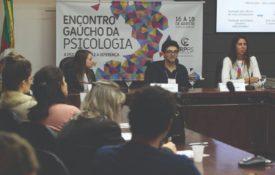
Thekla Morgenroth with the University of Exeter in the United Kingdom shares their research on gender, inclusion, and transgender rights. Visit Page
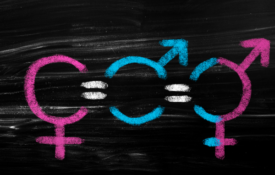
A growing body of research supports the fact that, with acceptance and body autonomy, people who are transgender can live just as happily as anyone else. Visit Page

Research conducted around the US Supreme Court's ruling on gay marriage offers insight into how people's views change when the government takes sides on an issue. Visit Page
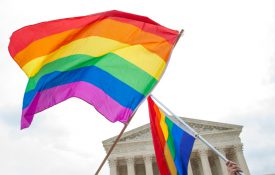
Data collected from 2004 to 2016 show that Americans’ attitudes toward certain social groups are becoming less biased over time. Visit Page

Previews of emerging research on inclusivity by early-career psychological scientists. Visit Page
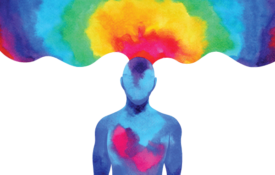
The real power to change people’s hearts and minds may lie in the television programs, books, and other media we consume on a daily basis. Visit Page

In a nod to Valentine's Day, researchers including APS Fellows Lisa Diamond, Eli Finkel, Nickola Overall, and Harry Reis share discoveries, challenges, and new directions in the study of love, desire, dating, and commitment. Visit Page

A comprehensive review of sexual orientation research aims to correct important misconceptions about the link between scientific findings and political agendas. Visit Page

Children who already demonstrate the strongest “cross-gender” identities are the most likely to socially transition, data suggest. Visit Page

Discussing matters of the heart can be the start of something beautifully platonic between the sexes – so long as the male isn’t interested in more. Visit Page

A study with children ages 5 to 12 indicates that the gender identity of these children is deeply held and is not the result of confusion about gender identity. Visit Page

Employers are likely to abide by laws barring discrimination against gay workers not because they are necessarily afraid of being punished for violating the law, but because these laws send a clear message about acceptable moral behavior in the community, a study suggests. Visit Page
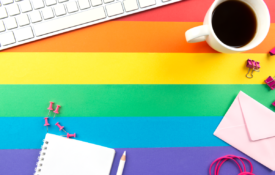
Why do opponents of same-sex marriage really oppose it? A study concludes that many people believe gay men and women are more sexually promiscuous than heterosexuals, which they may fear could threaten their own marriages. Visit Page
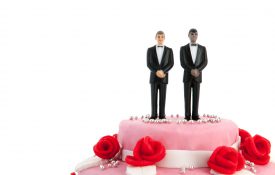
COVID-19 restrictions have significantly altered the grad school application process, but have also opened new avenues for communication online. Visit Page

Psychological science can help pave the way to greater acceptance for members of the LGBTQ+ community. Visit Page

The latest issue of Perspectives on Psychological Science is dedicated to the singular topic of microaggressions: statements, policies, and environmental cues that carry racial and prejudicial overtones. Visit Page
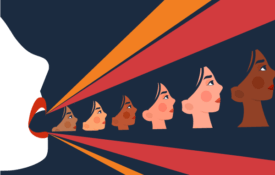
How taking steps to create more equal social environments can change our minds. Visit Page
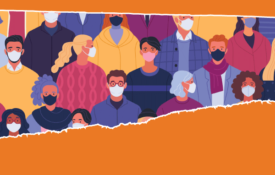
Research suggests that taking steps to create more equal social environments may be more effective at reducing prejudice than targeting implicit bias directly. Visit Page

A “safe" retirement investment put this cognitive psychologist’s lifetime of learning to the test. Visit Page

Globally, gay and bisexual men (GBM) face great health risks as well as social challenges due to the stigma associated with their sexual orientation and/or identity. Register for the webinar to learn more. Visit Page

Through meta-analytic work, APS James McKeen Cattell Fellow Janet Shibley Hyde is toppling long-held assumptions about differences between men and women's capabilities, attitudes, and emotions. Visit Page
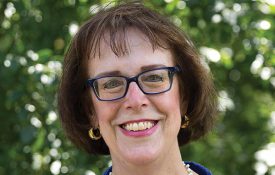
Some of the most urgent issues that American society faces today — including obesity, consumer debt, risk of terrorism, and climate change — are fundamentally influenced by decision making and behavior at both the individual Visit Page